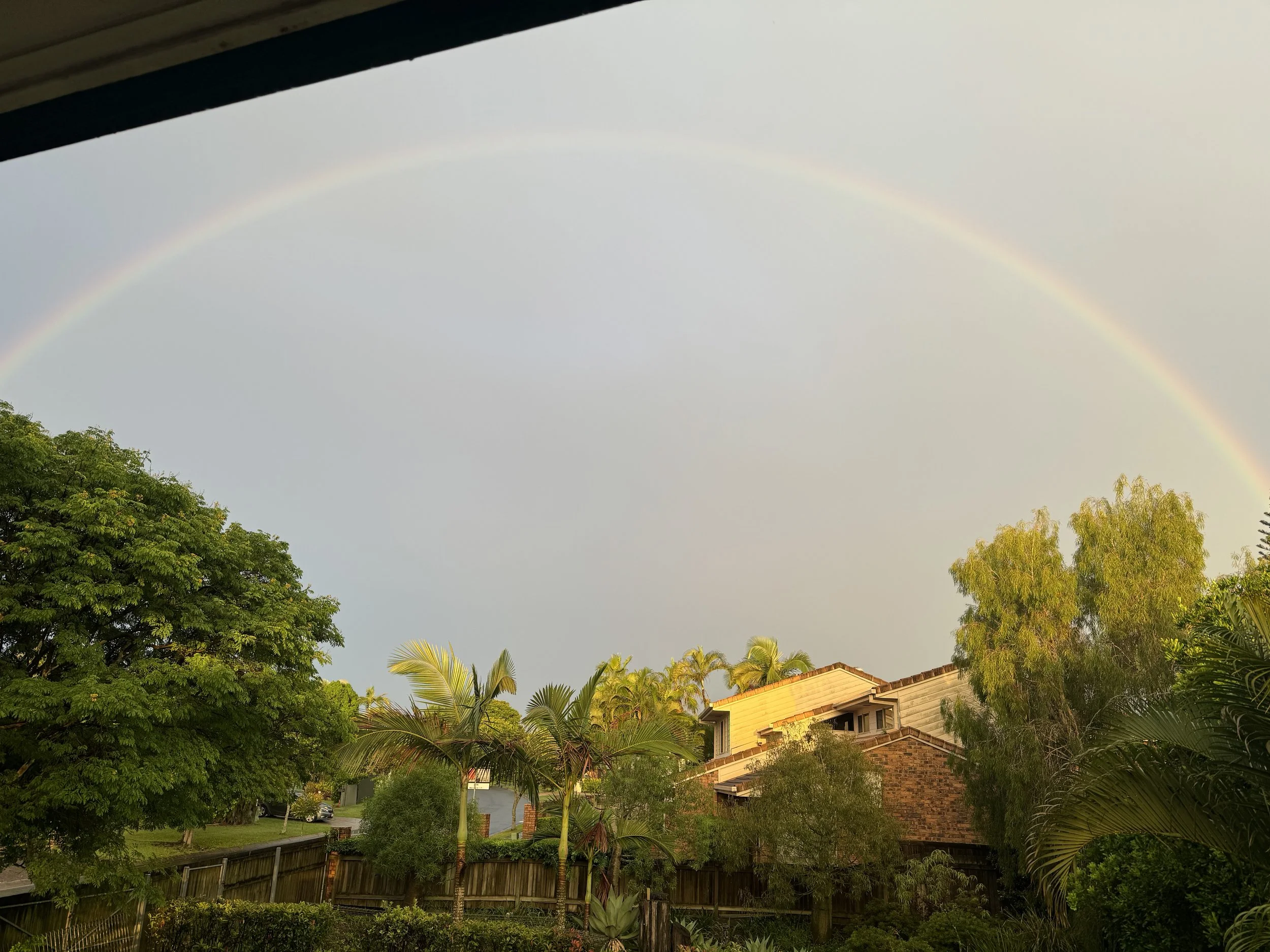Readings:
Gen 9.8-17; Ps 25.1-10; 1 Pet 3.18-22; Mark 1.9-15.
May I speak in the name of God, always Creating, Redeeming, Sanctifying.
When we think of Jesus’ time in the wilderness, what usually springs to mind?
Answers offered: nature, hunger, solitude, danger…
I often think of temptations; bread, jumping off rooves…
In this week’s gospel we hear of Baptism, Spirit, Blessing, Wilderness/ Wandering. And we see some parallels with Old Testament stories:
Baptism is reminiscent of the Israelites crossing the Red Sea when they leave Egypt. But Peter’s letter today also connects it with the flood.
Wandering in the wilderness for 40 days speaks into the Israelites wandering in the wilderness for 40 years. Forty days for 40 years. But it also recalls the 40 days of rain falling in the flood story. Forty days of Lent.
One thing I love about the baptism story is that before the Spirit drives Jesus to the wilderness, he is blessed. And what a blessing! “You are my son the beloved, with you I am well pleased.”
We entered our 40 days of self reflection on Wednesday, and we did so in a state of blessedness. The ashes that we mark ourselves with as a symbol of humility and grief that we will always fall short, are blessed before they are imposed, and they are made from palm crosses which were themselves blessed last year.
What does Mark tell us about Jesus’ time in the wilderness? Only this:
It was 40 days
Tempted by Satan
With wild animals
Angels waited on him.
What are your thoughts about the wild animals?
Matthew and Luke omit that detail, but expand exponentially on the details of the temptations. The Spirit is present with Jesus, but the angels don’t appear in Matthew until the very end, and don’t appear in Luke’s account at all. John doesn’t even have a record of Jesus 40 days in the wilderness.
Mark’s account is different:
“And the Spirit immediately drove him out into the wilderness.
He was in the wilderness 40 days, tempted by Satan.
And he was with the wild beasts;
and the angels waited on him.”
How are we feeling about the wild beasts now? They appear to be in the same category as the angels!
Let’s cast our minds back to the flood.
There is a parallel in every ancient culture. A very similar story to ours appears in the Epic of Gilgamesh from Mesopotamia, about 4000 years old. There are some important things we should notice about the ancient world and why the God of the Israelites was so counter-cultural.
In the ancient world, all gods were warring gods. They were violent; warring amongst themselves and against humanity. These are stories of chaos! But Israel’s god is different. This God speaks and it is so.
In the Epic of Gilgamesh, the god’s are angry because, after they created humans to carry out their chores, they found humanity to be a rowdy bunch and made too much noise. So, they decide to wipe the slate clean and start again. There is no transformation of either humanity, or divinity.
In our story, God sees that humanity was wicked. “I will blot out [everything] I have created… for I am sorry I have made them” (Gen 6.5-7). So far, the reason is significantly different, but the violence remains. God chooses death. Enter Noah.
Immediately after God decides violence and death, God chooses to save. Noah and his family are saved. But then God expands that salvation to all creatures! Right away ‘every living thing,’ and ‘every kind of food,’ is also saved (vv. 19, 21). The flood happens, it rains for 40 nights, everything other than that which is on the ark is ‘blotted out’ But the best is yet to come!
Q: What would you think of as the ultimate weapon of war in the bronze age?
A: A bow and arrow!
Q: What is the sing of God’s covenant?
A: A bow! A bow, unstrung, hanging up in the sky. God chooses not to be a warring God anymore.
Q: And for whom is this bow in the sky as a reminder?\
A: God!
v. 13: I have set my bow in the clouds, and it shall be a sign of the covenant between me and the earth.
v. 14-15: When the bow is seen… I will remember my covenant.
v. 16: When the bow is in the clouds, I will see it and remember the everlasting covenant between God and every living creature of all flesh that is on the earth.
In these 10 verses from Genesis, the writers tell us seven times that God has made a covenant with humanity and “every living creature… of the earth... that never again shall all flesh be cut off by the waters of a flood…”
Ancient writers were not careless with their words. To repeat this covenant with all humanity and with the earth itself tells us this is something terribly important. It is so important that God puts a reminder for God’s self in the clouds!
God made a covenant with every living creature.
And Jesus was with the wild beasts.
Is it possible that Jesus preached the Good News that the Kingdom of God is near first to the wild beasts while he was in the wilderness with them being tempted, and being attended to by the angels?
During lent this year, can we open our minds and heart to not only seeing ourselves more clearly, that which is beloved and that which bust be driven out, but also the animals, the vegetation, the earth itself more clearly? Knowing them also to be children beloved of God?
Amen.

